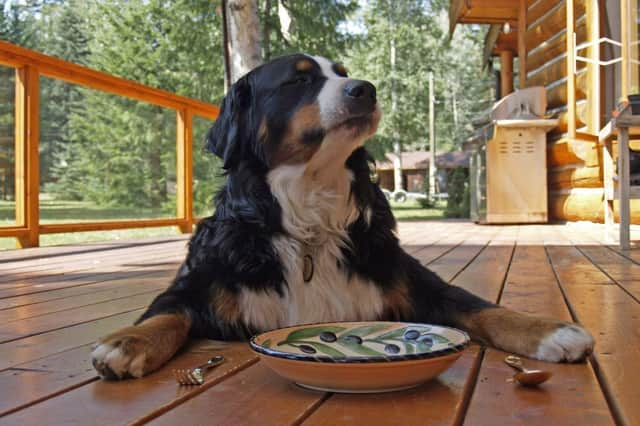Dogs Nutrition: Here are 5 experts tips on making sure your adorable dog's diet gives them everything they need
This article contains affiliate links. We may earn a small commission on items purchased through this article, but that does not affect our editorial judgement.


When it comes to special days of the year – including the upcoming Valentine’s Day – it can be tempting to treat our dogs to extra snacks.
But it’s important that you keep an eye on what your dog is eating, as a balanced diet is key to a healthy, happy and long life.
Advertisement
Hide AdAdvertisement
Hide AdTo help out new dog owners Dr Jo Myers, practicing veterinarian on digital vet platform Vetster, has shares her top five nutrition tips.
Here’s her advice.
Keep it simple
It’s important to keep it simple. The greater the effort you put into trying to feed your pet in a way that is somehow the ‘best’, no matter how exotic, expensive, or difficult to get it is, the more likely it is you will actually make your pet sick as a result. With only a few exceptions, a pet being fed cheap store-brand food is not likely to develop a nutritional illness. Exotic, raw, and home-made diets are far more likely to not be nutritionally complete and are more commonly associated with medical issues such as poisoning.
Home-cooked is not best
Another mistake pet parents tend to make is thinking that home-cooked food is better for their pets. As humans we might think that we can provide a healthier meal than mass-produced kibble from our local Tesco — but this isn’t always the case. There's plenty of research and evidence to suggest that homemade pet meals often end up being nutritionally imbalanced despite our best intentions. Remember that dogs have canine nutritional needs and cats have feline nutritional needs. That means that what might be best for you as a human might not be best for them. They need to eat like dogs and cats, not like people. It doesn't mean you love your pet more if you feed it like a human. Instead, it means you're likely to make your pet sick.
Keep age and size in mind
Just as you wouldn’t feed a new baby the same meal you’re having, the same goes for your pets. Puppies and kittens are growing rapidly and have special nutritional needs. Check your pet food label to see what life stages it’s suitable for. While your pet's age plays an important role in their nutrition, so does their size. This one’s more about dogs than cats. Large-breed dogs and puppies have different nutritional requirements than small breed dogs and puppies, so when you’re making dietary decisions for them, be sure to keep that in mind and always check the label.
Sharing isn’t caring
When we’re eating something delicious, it’s only natural to want to share with the people and pets you love the most. Unfortunately, though, there are plenty of human foods that are toxic to pets. For example, chocolate, caffeine, grapes, raisins, onions, and garlic are toxic to both dogs and cats. In large amounts, some of these can be fatal. So, try to resist the urge to share your food and table scraps with your pets. If your pet accidently does eat any food that is toxic for them, seek advice from a licensed veterinarian.
Talk to your vet
When it comes to finding the right food to feed your pet, there’s a lot to manage and a lot to consider. So, if you’ve done your research but you’re not sure how best to feed new puppies, kittens, or an ageing pet, it’s probably wise to speak with your vet.
Virtual veterinarians on Vetster are available anytime, day or night, to answer your questions.
Comments
Want to join the conversation? Please or to comment on this article.